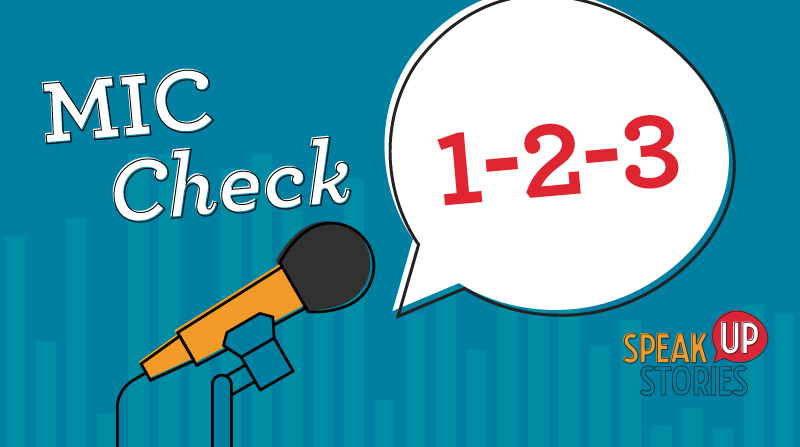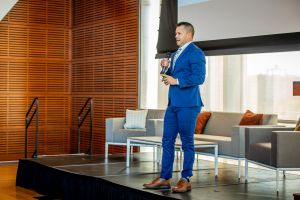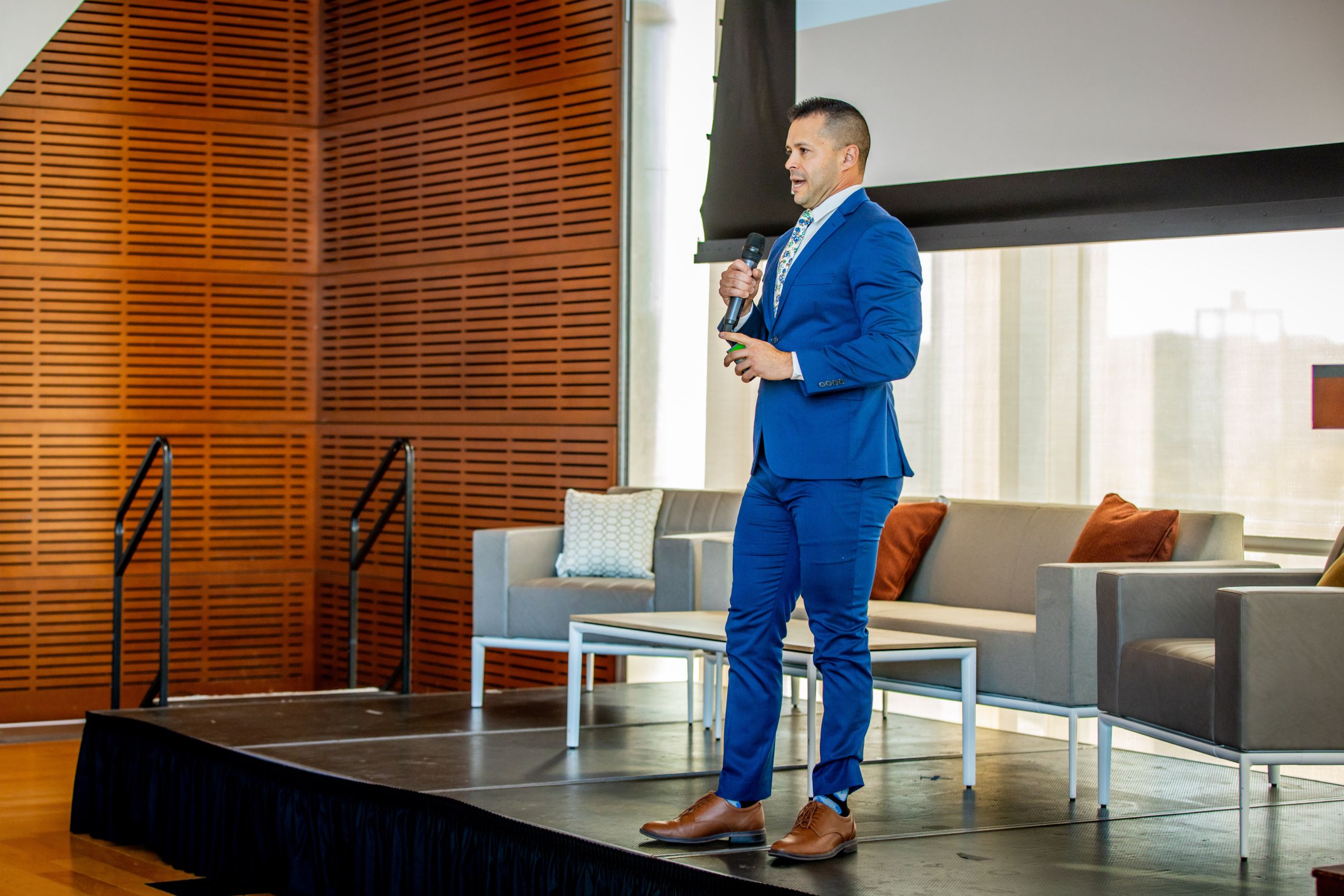🗣 SPEAK UP STORY: THEN THERE WAS THE TIME MY CONSTRAINTS GAVE ME FREEDOM…
I wish I could say I was heckled; that would have been a thrill in its own right. Instead, what I faced was something Amy Cuddy refers to as “social quicksand”—stonefacing. Imagine standing in front of an audience and receiving absolutely no reaction, just a blank stare that seems to pierce your soul.
📚 This unsettling experience unfolded during my junior year of high school. I had recently joined the speech and debate team and was competing in duo interpretation, a category where two people bring scenes from a play, novel, or poem to life. My partner and I had been on a roll, making it to the final round in nearly every tournament we entered.
❄️ Then came December and the “Winter Festival,” an unofficial precursor to the State tournament. This event allowed teams to showcase their top talent, offering a sneak peek of the fierce competition that would unfold in the coming months.
My partner and I were thrilled to make it to the semi-finals, especially since we would be facing teams we hadn’t yet competed against.
👀 Sitting in the front row were two competitors from a rival school—a school known for dominating the competition. These young women chose their seats strategically, and I soon realized why.
🎯 Reason 1: They sat where the judges couldn’t see their reactions. Civility is a cornerstone of these competitions, and heckling—or stonefacing—is strictly forbidden.
🎯 Reason 2: Their front-row seats allowed them to shoot us dagger-like glances, making the experience all the more uncomfortable for me.
I was devastated. Why would they do this? Why would they be so rude? They were already part of a powerhouse team; why did we matter to them?
💡 Then it clicked.
We did matter.
We were a threat.
People don’t resort to heckling or other forms of intimidation unless they feel threatened. It was a lesson in the dynamics of competition: as you improve, the challenges you face grow proportionally.
🎤 Audience feedback affects me, I won’t lie. In my keynote speeches, I often share that I’m an immigrant. On several occasions, people have walked out upon hearing this. It’s disheartening, but it also reminds me that not everyone is my target audience. I have a limited time on stage, and focusing on those who are open to my message is crucial.
As you navigate your own journey in public speaking, you’ll receive all kinds of feedback. Some will be constructive, while some will stem from fear or prejudice. The key is to focus on those who genuinely want to hear your message.
In the end, if your content doesn’t challenge or unsettle someone, you’re probably not making a significant impact. So go ahead, share your stories and reach those who truly want to be reached. Keep speaking your truth, do the show you know, and your audience will follow.
KEEP SPEAKING UP YOUR STORY,

ENCORE: MORE TO EXPLORE

STORYTELLING STRUCTURE FOR SPEECHES
This video unveils the secrets to crafting compelling speeches, and emphasizing how a well-structured narrative can transform a speaker into a captivating storyteller and leader.

ARE YOU THE SAME ON STAGE AS YOU ARE OFF STAGE?
Confidence comes from being able to respond to your environment. However, if we are not being honest with ourselves and with others, it is nearly impossible to have confidence and to lead others, especially as a professional public speaker. Click the link below to learn more!



